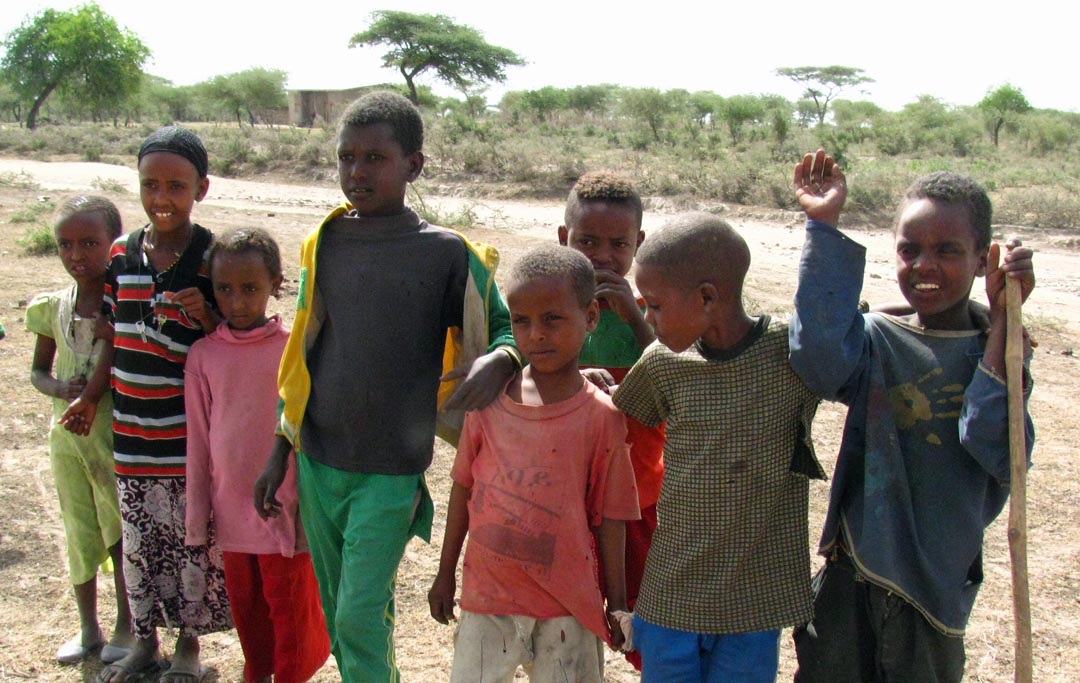After breakfast yesterday our group drove to Zeway in the Rift Valley, where we had a meeting with employees of the Mekane Yesus Development and Social Services Committee (DASC). This is the NGO (non-government organization) we are working with to try to bring water to a nearby impoverished community called Jido. At the DASC office we learned about the challenges that have kept this community from receiving safe drinking water thus far. The groundwater here has a very high mineral content, and is so high in flouride that it is dangerous to drink. It leaches calcium from the bones, and can turn the teeth black over time. Jido has a well already, but it pumps this flouride-poisoned water. The only other water source comes from the ponds and puddles left by rain, but this has problems of its own. The rainy season here is very short, and the rainwater is contaminated by waste and runoff the moment it touches the ground.
The plan for bringing clean water to Jido involves a pipeline from a spring resevoir in Bulbula. Since Bulbula has higher elevation, the pipe would use the force of gravity to bring water down into the valley. Now, the struggle is to figure out how to make this project efficient and affordable.
After our meeting, we drove to Jido, where we were greeted by dozens of children and looked upon with some confusion by their older relatives. They were actually awaiting the arrival of another group of U.S. visitors, our friends from Food for the Hungry who work with the community’s orphaned youth, who arrived a little while after us.
It was clear that these families lack the water needed to sustain their lives and livelihood. Many of the kids’ teeth showed decay, and because they have so little water in such a dusty place, it is impossible to keep clean. We really hope to be able to make this project work in the near future to help improve the livelihoods of Jido’s children.

After breakfast yesterday our group drove to Zeway in the Rift Valley, where we had a meeting with employees of the Mekane Yesus Development and Social Services Committee (DASC). This is the NGO (non-government organization) we are working with to try to bring water to a nearby impoverished community called Jido. At the DASC office we learned about the challenges that have kept this community from receiving safe drinking water thus far. The groundwater here has a very high mineral content, and is so high in flouride that it is dangerous to drink. It leaches calcium from the bones, and can turn the teeth black over time. Jido has a well already, but it pumps this flouride-poisoned water. The only other water source comes from the ponds and puddles left by rain, but this has problems of its own. The rainy season here is very short, and the rainwater is contaminated by waste and runoff the moment it touches the ground.
The plan for bringing clean water to Jido involves a pipeline from a spring resevoir in Bulbula. Since Bulbula has higher elevation, the pipe would use the force of gravity to bring water down into the valley. Now, the struggle is to figure out how to make this project efficient and affordable.
After our meeting, we drove to Jido, where we were greeted by dozens of children and looked upon with some confusion by their older relatives. They were actually awaiting the arrival of another group of U.S. visitors, our friends from Food for the Hungry who work with the community’s orphaned youth, who arrived a little while after us.
It was clear that these families lack the water needed to sustain their lives and livelihood. Many of the kids’ teeth showed decay, and because they have so little water in such a dusty place, it is impossible to keep clean. We really hope to be able to make this project work in the near future to help improve the livelihoods of Jido’s children.


About The Author: Jillh
More posts by jillh